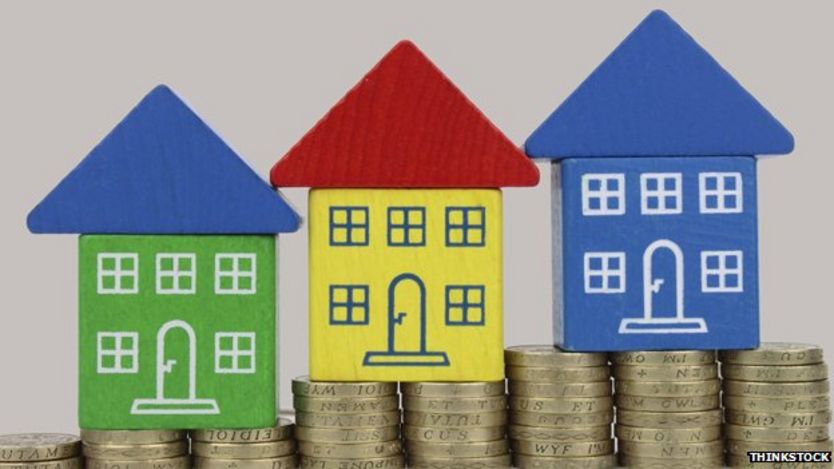
Once British politicians promised to keep property prices low. Now homeowners expect the value of their houses to move ever upwards. Are Westminster governments of whichever party now obliged to let house prices always rise?
In 1966 the Conservative party manifesto made a promise. A Tory government would "get the houses up and keep the prices down".
Fast forward to the present day. UK house prices rose 8.4% in the year to January 2015. In London they went up by 13%.
There's widespread concern that this is far too fast. That young would-be buyers are being priced out of the market.
And yet the idea that either a Conservative or Labour government would pledge to hold down prices today would be regarded by virtually everyone as far-fetched.
In 2015, the notion of taking steps with the stated aim of rolling back prices would be regarded by most politicians as electoral suicide - other than by the Green party, who did promise "house price stability" by increasing supply and making property investment less attractive.
Today some 63% of the population in England own their home outright or on a mortgage, according to the English Housing Survey. In Wales the figure is 70%, in Scotland 58% and it's 63% in Northern Ireland.
That's a powerful voting bloc with an interest in maintaining the value of its assets. And it expects the value of property to continue to go up and up. At the beginning of the year, some 88% of homeowners anticipated house prices would increase, according to Zoopla. Although recent monthly rises have been relatively subdued, they are still forecast to outstrip increases in average earnings.
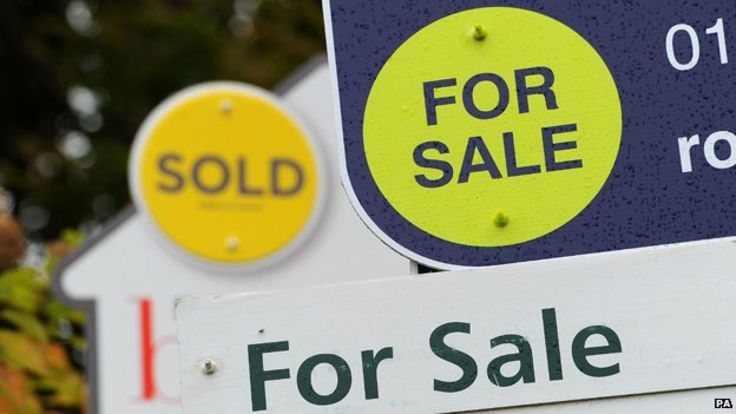
A 2014 study concluded that homeowners were more likely to turn out to vote than renters. As a result, they are disproportionately powerful, says Nida Broughton, chief economist at the Social Market Foundation and co-author of a 2013 report on the politics of housing in the UK.
"They are often long-term residents in an area. They are more likely to be from the older generation who are more likely to vote," she says.
Nor is it simply a question of crude electoral calculation. The sheer amount of wealth tied up in property means that ministers would be wary of allowing a serious reduction in the value of properties, even if it were considered politically desirable.
A big drop in values, say one of 40%, would see "people begin defaulting in big waves" on their debts, with a "snowball effect as confidence is lost", says Andrew Oswald, professor of economics at the University of Warwick.
There probably would be a recession "because the rich would stop spending" and start saving instead. While many would benefit from a wholesale shift to renting, Oswald says, those with the biggest stakes and the loudest voices would suffer the most.
And yet although British homeowners are influential, they are also in decline. Home ownership in the UK peaked in the mid-2000s and has been falling ever since. In England, owner-occupation is at its lowest rate for 30 years and is forecast to drop further.
In parts of London, as much as 30% of housing is rented privately. A generation of young people is increasingly giving up on the prospect of ever owning their own property, according to a survey by Halifax. Groups like Generation Rent and PricedOut have pushed the issue of affordability up the agenda.
By historical standards, however, owner occupation rates are high, thanks in part to rising incomes and cross-party government efforts to create and maintain what the 1951 Conservative manifesto called a "property-owning democracy" in which people were "owners as well as earners".
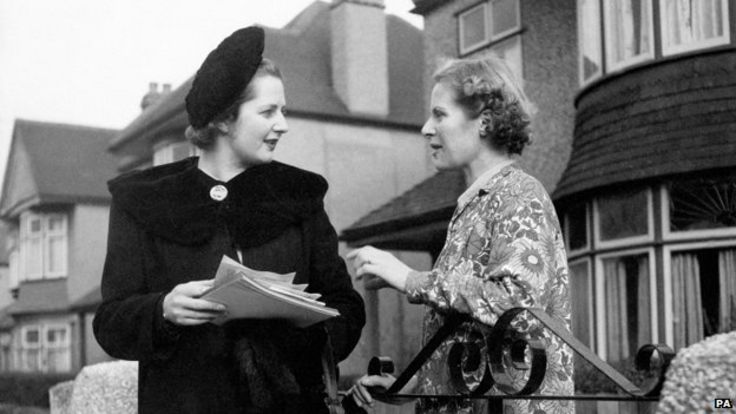
In 1918, 23% of the population were homeowners. By 1981 this had risen to 57%. While Labour initially opposed the "Right To Buy" council house sell-offs in the 1980s, it reversed its position.
In comparison with European countries such as Germany, home ownership remains extremely popular in the UK. In 2010 86% of people in England said they would prefer to buy their home if given the choice, according to the British Social Attitudes Survey. The main reason given for this preference was that property was considered a good investment.
There does appear to be a correlation between home ownership and attitudes towards the housing market. In the same 2010 survey, just 44% of homeowners felt prices were too high, compared with 66% of private renters and 64% of housing association tenants.
Those who own their own home are much less likely to support new developments in their area, Broughton says - a fact of which councillors with responsibility for planning decisions in local authorities are well aware.
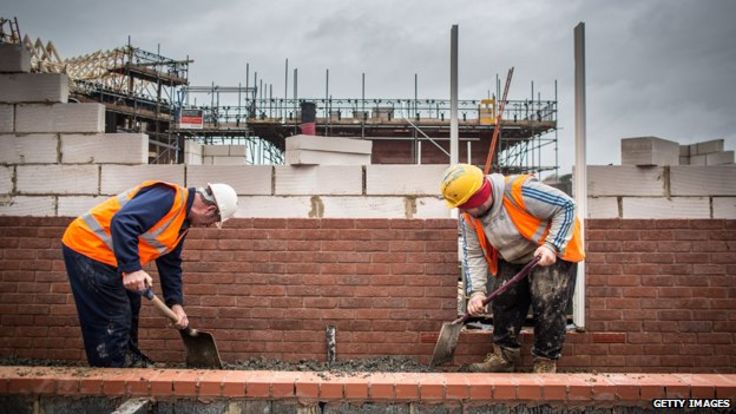
Supply is crucial to the debate. The first quarter of 2015 saw more UK houses built than in any three-monthly period since late 2007. But the homeless charity Shelter says the 141,000 UK homes built in 2013/4 were 100,000 fewer than the country needed to keep pace with demand. It's also well short of the target for 240,000 homes to be built a year by 2016 set by the government in 2007.
When it was elected in 1966 - the same year their opponents insisted they would keep house prices down - Labour pledged to build half a million homes in a single year. This year, by contrast, it promised only 200,000 a year by 2020.
Some, like Broughton, believe the planning system should be relaxed to loosen the grip of property-owning "insiders" whose influence prevents "outsiders" from finding a decent place to live.
But others believe the blame lies elsewhere. According to Danny Dorling, an Oxford social geography professor and author of All that is Solid: The Great Housing Disaster, there are more bedrooms than people in London, suggesting the problem is not one of supply.
Instead, he says, it's a problem caused by growing inequality and wealth concentration, as demonstrated by the growing number of empty properties owned by the super-rich in areas like Kensington and Chelsea.
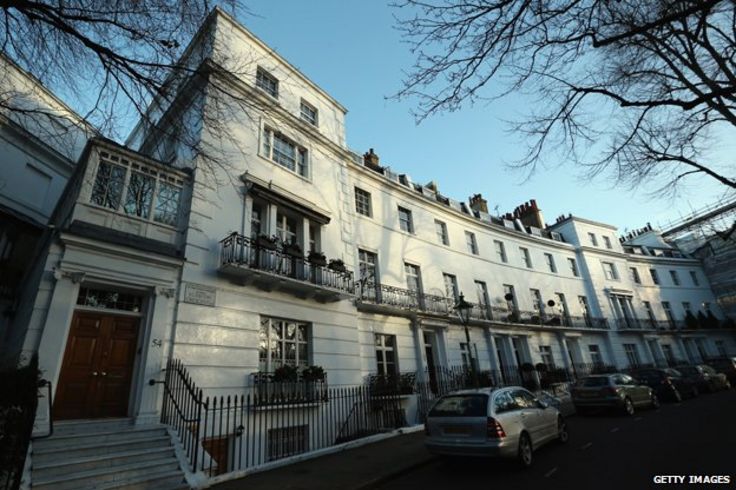
Instead, there's a kind of "confirmation bias" among the generation that did well out of the surge in property prices, Dorling believes.
"There's a myth that everyone will end up benefitting from this. Because that happened to one group, the old middle class are telling their kids that will also happen to you one day." This is further enhanced by the fact that in the last parliament one in four MPs was a landlord.
In fact, he says, the big winners of policies aimed at helping first-time buyers get on the ladder are those who already own property. "Your house literally isn't worth all that money if some naive young couple won't buy it."
Some politicians have drawn attention to the impact of immigration on housing costs, and it's certainly the case that the boom in prices has coincided with a prolonged period of high immigration, but studies into the relationship between the two have produced very different conclusions.
But it's not inevitable that rising prices will continue indefinitely. After both world wars, acute shortages pushed housing to the forefront of people's concerns. By 1970, however, there was a crude housing surplus in England and Wales, and the issue fell down the policy agenda.
This coincided with a steady decline in housebuilding by the public sector, which had previously driven construction in the UK.
Economists are divided over whether the UK is currently in a housing market bubble. There's also a big gap between prices in different regions.
Either way, the growing strata of young people - many of them on relatively high salaries - excluded from the property ladder are likely to make their voice heard ever louder, Broughton believes.
"Renters, because they are a growing group, may well have more of a voice," she says. "If you can do something around the private rented market to make it more affordable you change the relative advantages of going into home ownership, that lowers the demand for home ownership."
There have been policy shifts. All the major parties say they want to build more homes - although apart from the Greens, none said they wished to do so to stabilise prices, let alone bring them down.
The SNP government in Scotland signalled a shift from the Westminster consensus by abolishing Right To Buy and pledging to build 5,000 new council houses. In its manifesto, Labour called for a cap on private sector rent rises and an end to estate agents' letting fees. The Conservatives were elected on a promise to build 200,000 starter homes for first-time buyers under 40, extend the Help to Buy equity loan scheme to 2020 and extend Right To Buy to housing association tenants.
And there's increasing awareness among property owners that policies which may benefit them personally may have a less positive effect on their families and the country as a whole, says David King of PricedOut, which campaigns against the high cost of housing.
"What you increasingly see is quite a large number of homeowners that feel very concerned about the way the country is going," he says. That's started to change over the last year."
How Westminster responds to this pressure could be one of the key themes of the next five years.

More from the Magazine
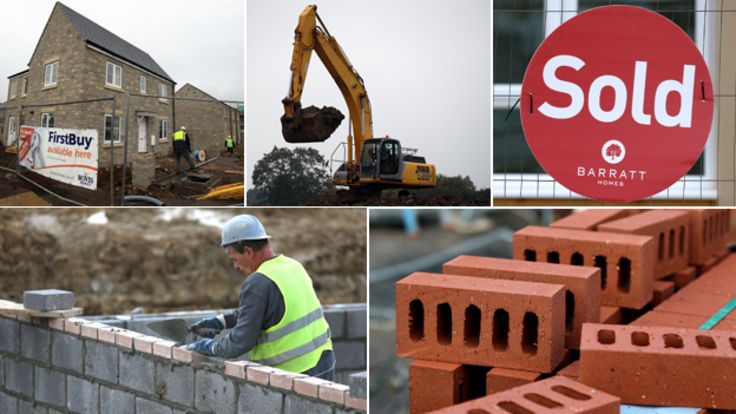
In 2007 the Labour government set a target for 240,000 homes to be built a year by 2016. The UK is nowhere near that. Why?

